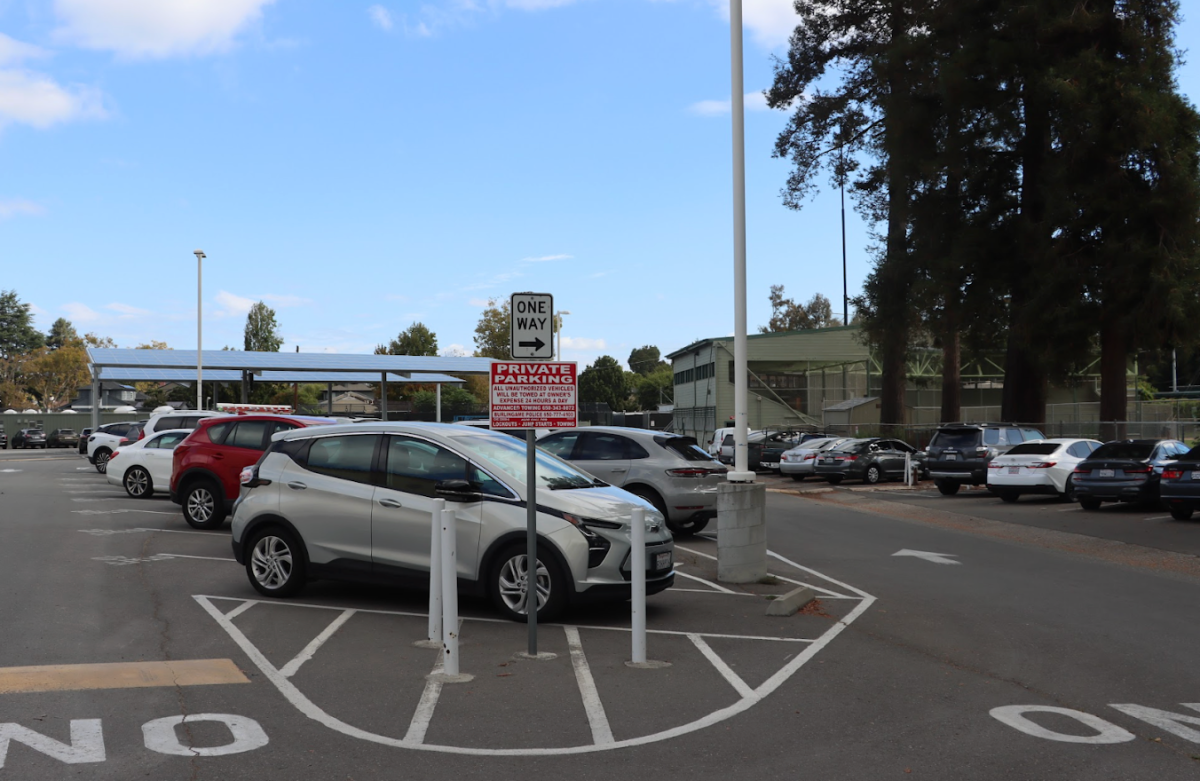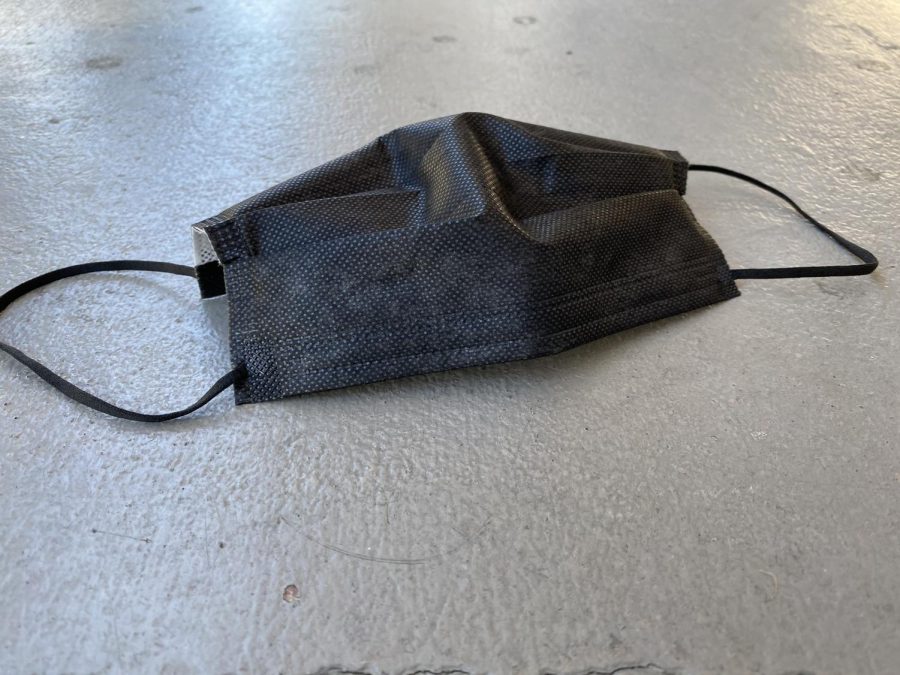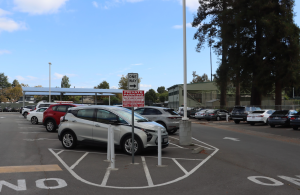Disposable masks protect humans but not the environment
Since the start of the pandemic, disposable masks have begun to litter common areas.
March 7, 2021
At the beginning of the COVID-19 pandemic, masks became a necessity in order to limit the spread of the virus. As the Centers for Disease Control and Prevention (CDC) learned new knowledge about COVID-19 and accordingly enforced mask mandates, conversations arose regarding whether to use disposable or reusable masks.
In a poll sent out to Burlingame’s student body, to which 87 students responded, 71.3% said they wear reusable masks while 26.4% wear disposable. The remaining 2.3% don’t wear masks, adding comments such as “the virus is a hoax” or “masks don’t work.”
While people believe it’s important to remain diligent in stopping the spread of COVID-19, some also think we have to remember to take care of the world around us. The increasing amounts of personal protective equipment (PPE) used in hospitals and by citizens daily are often not disposed of properly, in which much of it is littered on the floor or in nature.
According to Burlingame Environmental Club president, Cate Cattano, plastics and trash in the ocean indirectly affect the population.
“The masks break down into these microplastics and they get even smaller. But, these particles eventually accumulate in the food chain… If a salmon gets these microplastics into its body … and then say the salmon gets hunted and someone eats it, then that ends up in someone else’s body. The microplastics always circle back,” Cattano said.
The use of disposable masks has also led to an increase in littering, which junior Zoe Steinberger has noticed.
“I’ve seen a lot of disposable masks all over the floor, like on Burlingame Avenue, and if I ever go into [San Francisco], I see them a lot,” Steinberger said.
Despite living in unprecedented times due to the pandemic and the need for masks, sophomore Chiara La Mark believes that keeping the environment in mind is still important.
“I think [we] should really think about the bigger picture, because although you may not be seeing the effects right now, having waste, just around and building up for about a year — it’s really important to just think about how will throwing away, like, two masks a day, build up and affect the environment … I recommend thinking about those impacts. Even just the smallest thing of investing in a $5 reusable mask, I think, can go a long way,” La Mark said.
Environmental science teacher, Heather Johnson, also thinks that people should use reusable masks when possible.
“I feel like if people are presented with the choice, they should be choosing to use a reusable mask and the disposable masks should really be only set aside for medical purposes,” Johnson said.
Johnson also suggests that the treatment of the environment plays a big role in public safety.
“When the pandemic subsides, there will be another one… and the common theme is our environment. So our human interaction with the environment is what started this pandemic and previous epidemics as well,” Johnson said.
Using reusable masks reduces costs and benefits the environment by reducing waste, but for some people, layering a disposable mask on top of a cloth mask feels more sanitary and safe. Health professionals recommend double masking with a disposable and reusable mask or using disposable masks like the KN95s or N95s to prevent the spread of COVID-19.
Johnson says that even with the double-masking recommendation, it’s still possible to be environmentally friendly.
“Knowing that doubling up our masks might be more beneficial to [health safety, and] choosing to double up with two reusable masks is a more environmentally appropriate choice,” Johnson said.
Sophomore Brooklyn Arcenal uses disposable masks because of their convenience.
“I usually use disposable masks or the surgical ones because it’s easier and cleaner, because you aren’t, like, reusing it. But even if you do wash the reusable ones, I feel like it isn’t as sanitary. It’s also easier to breathe, using [the disposable ones],” Arcenal said.
Arcenal also argues that while using disposable masks can have an impact on the environment, there are ways to minimize the impact it has on marine life.
“I use disposable masks but I cut the straps … they get caught on animals a lot in the ocean, so I recommend cutting them,” Arcenal said.
The use of disposable masks can have negative impacts on the environment, but can help stop the spread of COVID-19.
“It’s really important to just think, how will throwing away two masks a day build up and affect the environment?” La Mark said.







































